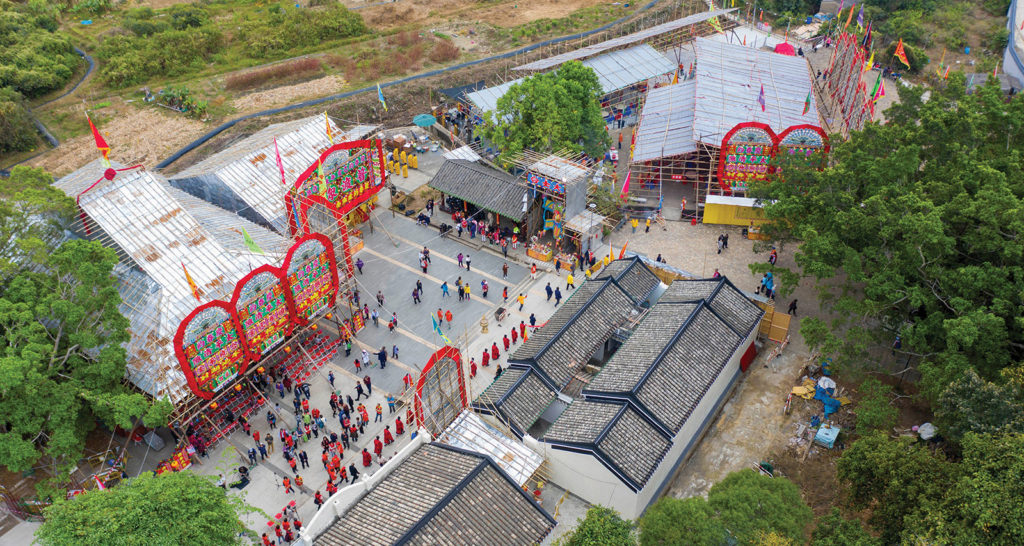Architectural Restorations for Remote Countryside Regeneration in Hong Kong
June 19, 2023
Outside of the hyper-dense high-rise compactness of urban Hong Kong, three-quarters of the city’s territory remain relatively rural and undeveloped.

There has been more attention to rural revitalisation since the government’s recent launching of countryside conservation policies and funding mechanisms. In 2018, the Countryside Conservation Office (CCO) was established to support innovative conservation of natural and cultural heritages in the remote countryside.1
In Sha Tau Kok, the remote northeastern corner of Hong Kong, a string of lesser-known Hakka settlements is dispersed throughout the hilly coastal terrain. These 300-year-old villages have evolved authentic agro-cultural heritage landscapes, yet most have become deserted after urbanisation and mass migration since the 1960s. Three cases of architectural rehabilitation in Lai Chi Wo, Mui Tsz Lam and Kuk Po are considered here, with respect to how traditional construction and passive design features have been restored or reinterpreted; how they contribute to the integrity of the village’s cultural heritage; as well as its overall revitalisation.
READ MORE | Lai Chi Wo: Restorative Reuse

READ MORE | Mui Tsz Lam: Radical Renewal

READ MORE | Kuk Po: Resilient Regeneration

[This is an excerpt. Subscribe to the digital edition or hardcopy to read the complete article.]

Thomas Chung is Associate Professor at the School of Architecture, The Chinese University of Hong Kong. He is an international award-winning architect who graduated from the University of Cambridge. Chung has been active in curating, exhibiting and steering the HK-SZ Bi-City Biennale of Urbanism\Architecture UABB since 2008. His award-wining projects Value Farm (2013) and Floating Fields (2015) fuse ecological design with socially innovative public space. Chung’s current research interests include countryside conservation projects, co-creative rural place-making and learning for well-being. He leads a multidisciplinary team with expertise in architecture, anthropology, geography and life sciences, and is consolidating a research hub on countryside-city regeneration.
Read more stories from FuturArc 2Q 2023: Old is Gold!

1 The Countryside Conservation Funding Scheme (CCFS) funds village revitalization projects that promote interactive partnerships between non-profit organisations (NPOs) such as universities and villagers.
To read the complete article, get your hardcopy at our online shop/newsstands/major bookstores; subscribe to FuturArc or download the FuturArc App to read the issues.
Previously Published Showcase
Contact us at https://www.futurarc.com/contact-us for older commentaries.
